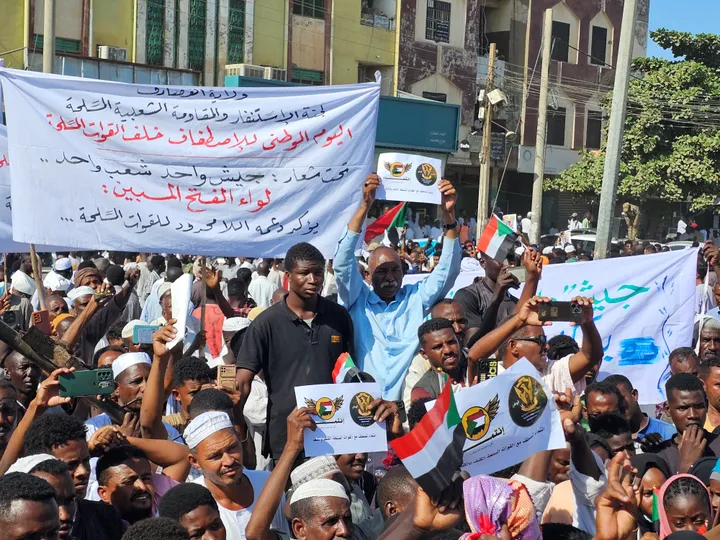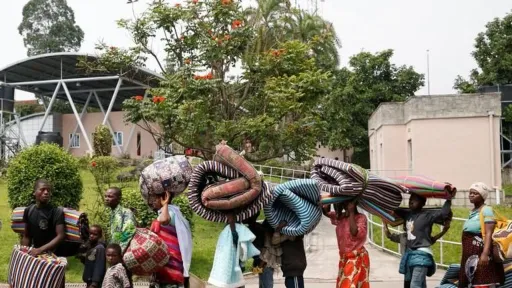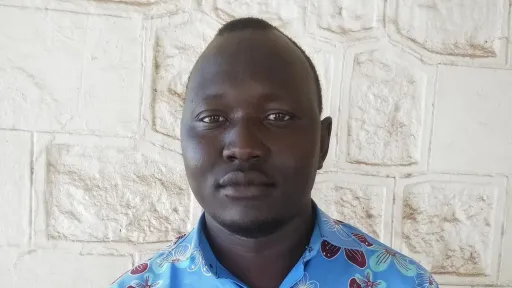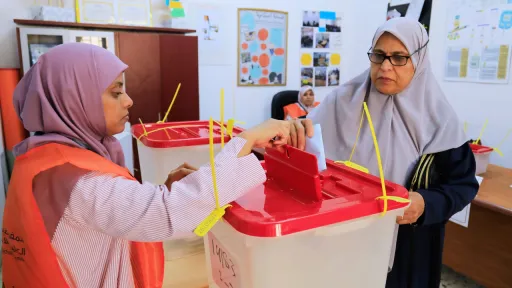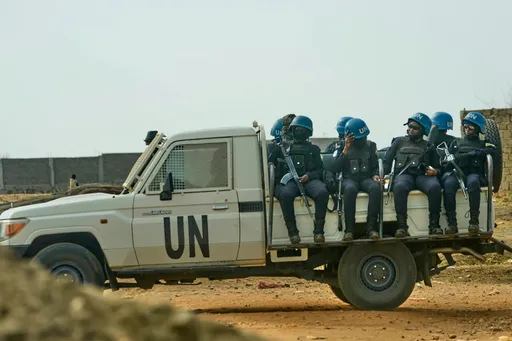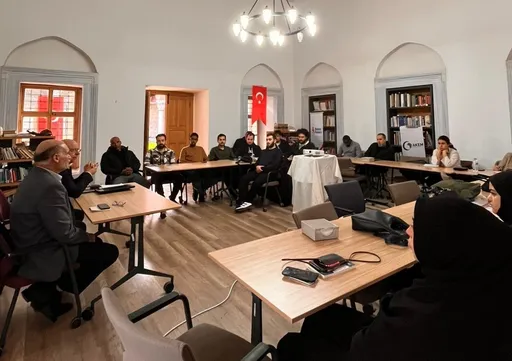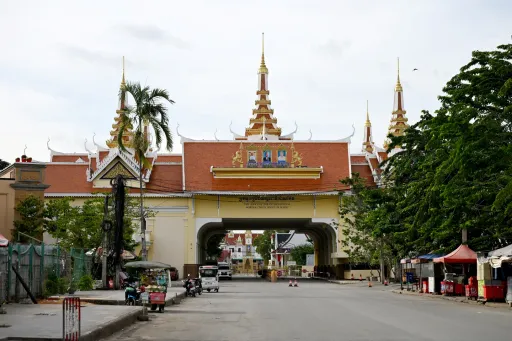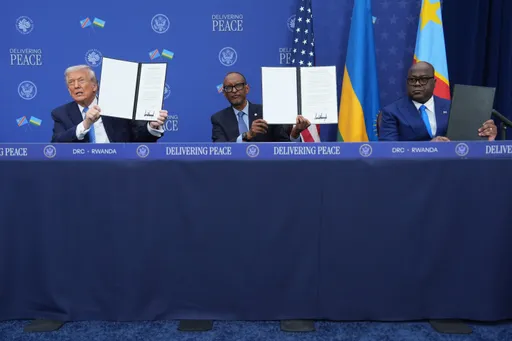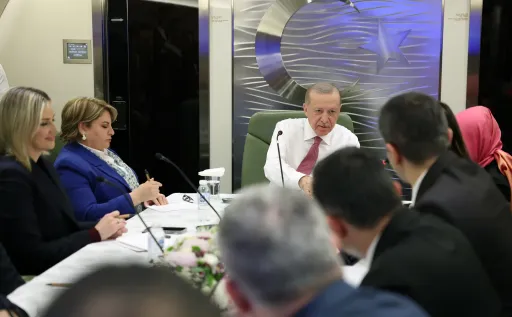By Dr Dan Steinbock
With 800 military bases in almost 90 countries, plus hundreds within the US, America has the largest collection of defence posts in foreign lands throughout history.
As interventionist military measures replaced political solutions, the US has been at war, engaged in combat, or otherwise employed its forces in foreign countries in all but 11 years of its more than 250 years of existence.
During his first administration, Trump relied more on military personnel than any previous administration since the Reagan White House.
But Trump has also touted non-interventionism and himself as a peacemaker who would not have let tensions in Ukraine and Palestine's Gaza result in a war.
So, will Trump prove to be a president of peace or a war-monger in the next four years?
The simple answer is both yes and no.
The two sides of Trump
The conventional wisdom is that Trump is a “transactional” president who is defined by unabashed opportunism. In this view, what matters is deal-making with foreign leaders.
The world aspires democracy, but it is run by so-called ‘strongmen’. Hence, Trump's fascination with and admiration of foreign leaders like Vladimir Putin, Xi Jinping, Viktor Orban, or so the story goes.
Yet, Trump’s key foreign policy appointees are known for their longstanding neoconservative and interventionist stances, like Secretary of State Marco Rubio, Secretary of Defence Pete Hegseth, National Security Advisor Michael Waltz, CIA Director John Ratcliffe, UN Ambassador Elise Stefanik and so on.
These men and women are ultra-neoconservatives who believe in a big stick in foreign policies.
Trump's cabinet is transactional, yet constrained by neocon ideologues with highly interventionist impulses. They may have his ear, but it doesn’t mean he always listens to them.
In his first administration, Trump relied more on White House advisers than the State Department to advise him on international relations. This stance could prevail.
If Trump 1.0 built the Abraham Accords on his senior adviser and son-in-law Jared Kushner, Trump 2.0 relies on Steve Witkoff, a property tycoon, Zionist donor and golf buddy who has already sidelined the State Department in the region.
Unlike Trump 1.0, which thrived on chaos and unpredictability while reneging on longstanding US international commitments, Trump 2.0 has moved ahead fast, but not without turmoil with US allies.
Based on his ‘America First’ doctrine, he favours nationalist foreign policy, bilateral deals over multinational agreements, and non-interventionism.
In this, he is supported by Vice President JD Vance, while the nomination of Tulsi Gabbard as the intelligence chief signals greater restraint in the American approach to international affairs.
However, there is a common denominator between both Trump administrations – big money.
Policies by billionaires and big finance
American politics is driven by money. Trump’s campaign finance is a textbook case.
In 2020, he was supported by the controversial hedge-funder Robert Mercer (net worth up to $1 billion) and his daughter Rebekah, whose money fueled Super PACs, the activities of far-right supremacist Steve Bannon, even Boris Johnson and the UK Brexit.
Now, the Mercers fund some Trump officials as well as the think-tank Heritage, which is behind Project 2025, the radical effort to shrink the public sector in the US.
This time, Trump’s money bags are far bigger. These top contributors featured Space X - read: Elon Musk (net worth up to $400 billion); the uber-conservative billionaire investor Timothy Mellon (net worth 14 billion); and Miriam Adelson ($32 billion), the billionaire Israeli-American wife of the late casino tycoon Sheldon Adelson.
Each contributed individually about $100 to $300 million in Trump’s campaign.
There is also a shift of support from 2020 to 2024. The large contributors now dominate two-thirds of the total, over small individual contributions.
Among sectors, the financials, space and transportation industries are running the show, supported by Trump’s traditional constituencies, elderly Americans and conservative Republicans.
Domestically, Musk serves as Trump's master disruptor. But in foreign policy, he is a moderating force, both in the case of tariffs and China.
Four years ago, Trump’s campaign still got over $300 million from the dark money category. By contrast, big finance felt uncomfortable with Trump and his constituencies.
But that was then. Today, financial institutions stand behind Trump. They believe they can use him, while he thinks he is using them.
Many interventionists, whether Republicans or Democrats, rely on money from defence and energy. Trump doesn't.
He likes to talk tough and act tough, but ultimately, he favours economic coercion. There is a caveat, however. Call his bluff and he may resort to a big stick.
Expansion and domination
In his first term, Trump reoriented the US national security and defence strategy to focus on great-power competition with China and Russia and provoked European allies by threatening to abandon the Cold War-era defence alliance.
Now, Trump seems to be predicating national security on a hemispheric defence system based on US expansion and domination.
Canada/Greenland/Arctic. This strategic objective motivates Trump’s quest to make Canada the 51st state. At the minimum, the effort is used to gain leverage for a greater US role in North America. The same goal led to his bid to buy Greenland, which he sees as a foothold for Arctic dominance.
Mexico/Central America/Panama Canal. The same pursuit also motivates his efforts to militarise America’s southern border with Mexico, contain immigration from Central America and control the Panama Canal in the name of national security, to undermine China’s economic cooperation in Latin America.
Outside the Americas, Trump is pushing a sphere of influence approach as intensively as his idol, President William McKinley, over a century ago. In this ‘great game,’ he relies on America’s major non-NATO allies as America’s extra-territorial military footholds.
Israel/Middle East. Trump’s approach to the Middle East has been defined by strong support for Israel, which is used for military primacy in the region, and Saudi Arabia, which is seen central for stabilisation, and a hostile stance towards Iran. Miscalculations could re-inflame Gaza and spark regional escalation via Iran.
Ukraine/Russia. Trump believes it is in the US interest to end the war in Ukraine soon, but wants an acceptable deal with Putin. Like his predecessors with the late Russian president Gorbachev, he hopes to turn Putin’s Russia against China, which won’t happen.
Taiwan/East Asia. In 2016, he became the first US president since 1979 to speak directly with his Taiwanese counterpart. He increased US Navy patrols in the Taiwan Strait and pushed for more arms sales to Taiwan but wants Taipei to pay more for US protection. A miscalculation with China could cause lethal regional escalation with dire global repercussions.
Philippines/Southeast Asia. In July 2020, his administration announced it would reject nearly all Chinese territorial claims in the South China Sea. It is the Taiwan foothold tactic deja vu. The potential for similar miscalculations is significant.
Nigeria/Africa. In sub-Saharan Africa, Trump ordered a strike against Daesh in Somalia that killed multiple people. It was preceded by another air strike in northwest Nigeria, a close US ally in the region and a major US arms buyer. Through its African Command, headquartered in Stuttgart, Germany, the US military maintains some 30 bases in the resource-rich but poor continent.
The Trump administration seeks expansion in North America, hemispheric defence across the Americas and aggressive spheres-of-influence domination in other critical world regions.
These strategic goals will significantly increase economic risks and geopolitical threats worldwide – not to mention miscalculations that would have global repercussions.
The author, Dr Dan Steinbock is the author of The Fall of Israel and founder of Difference Group. He has served at the India, China and America Institute (US), Shanghai Institute for International Studies (China) and the EU Center (Singapore).
Disclaimer: The views expressed by the author do not necessarily reflect the opinions, viewpoints and editorial policies of TRT Afrika.
➤Click here to follow our WhatsApp channel for more stories.

